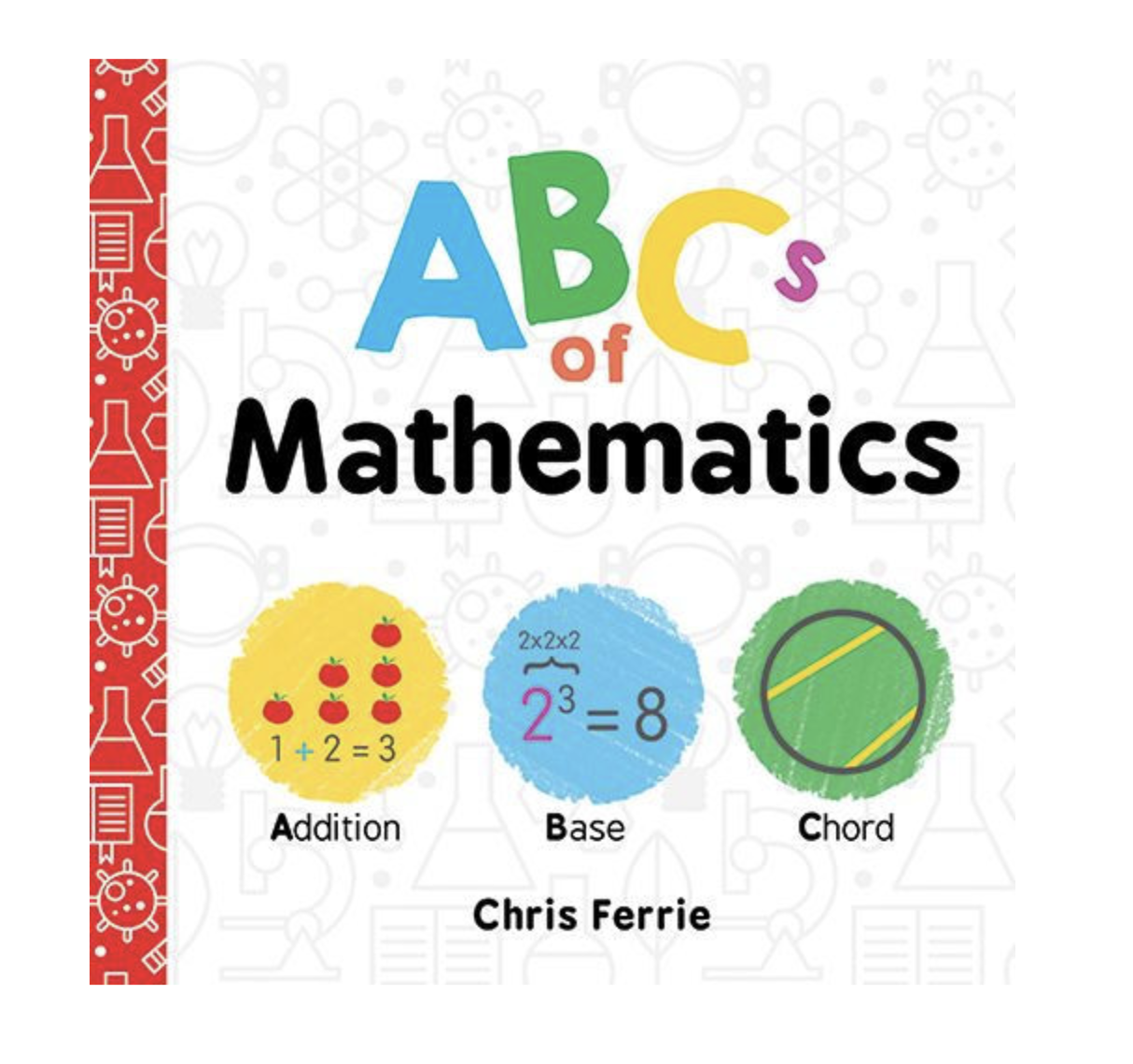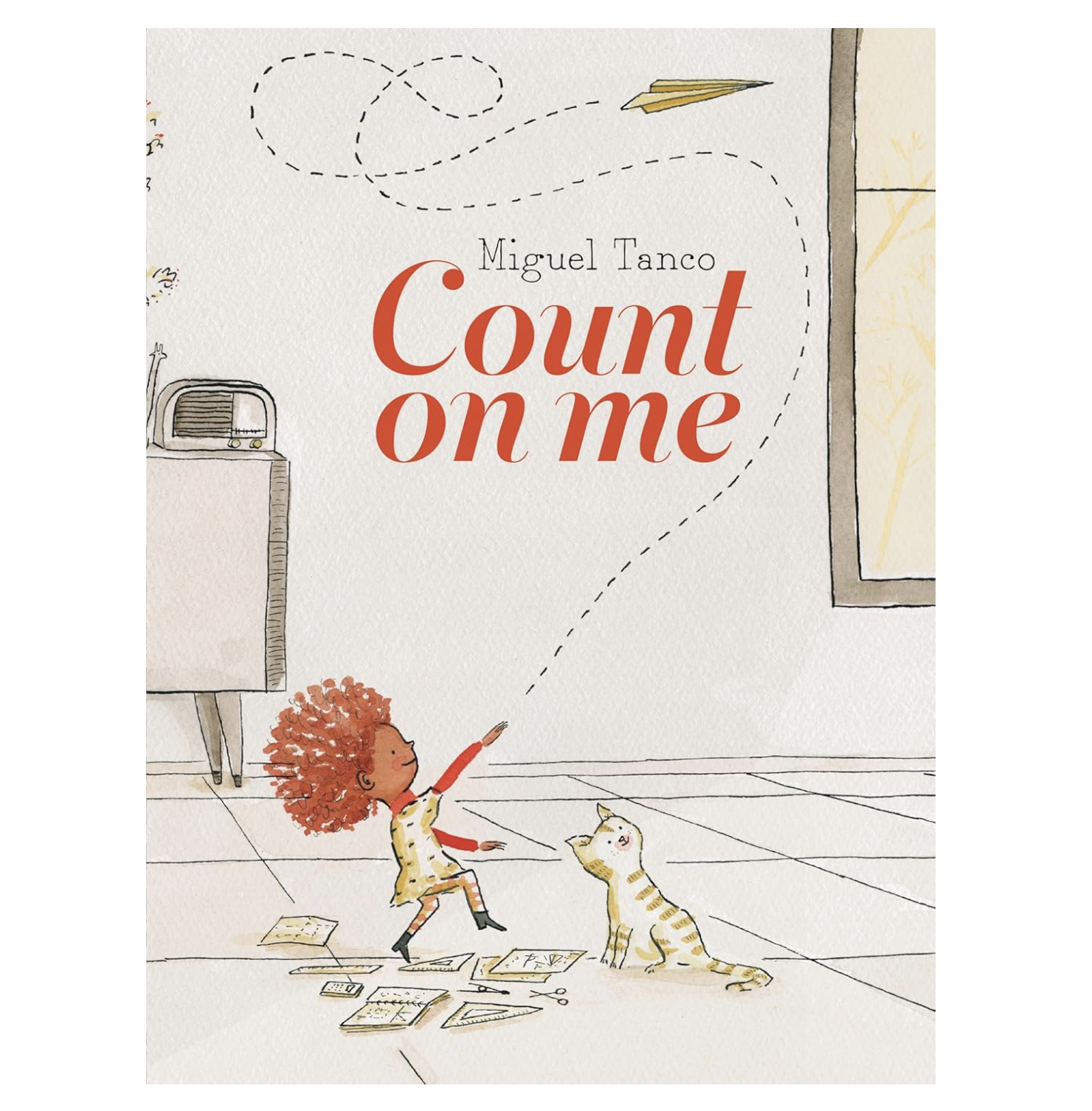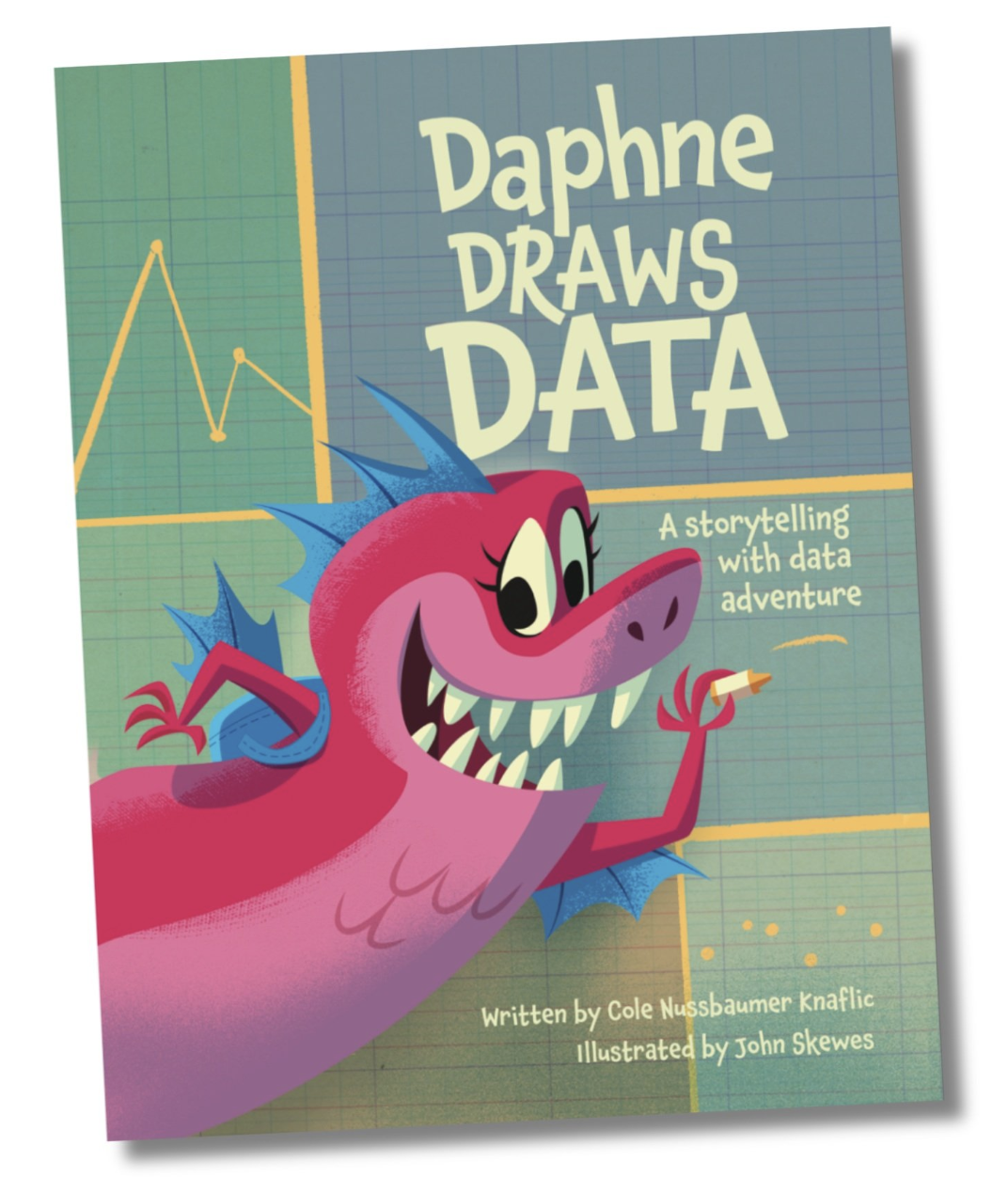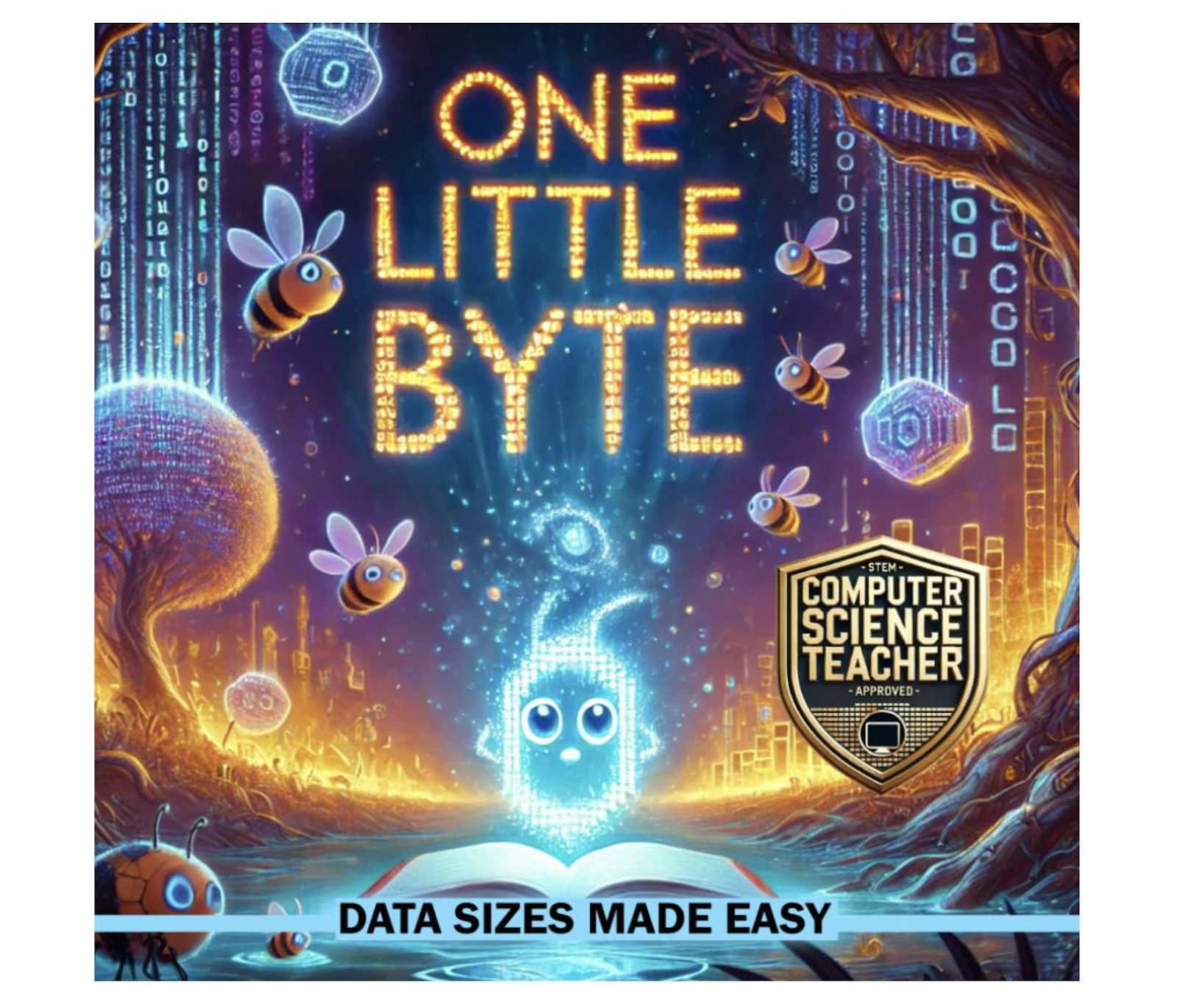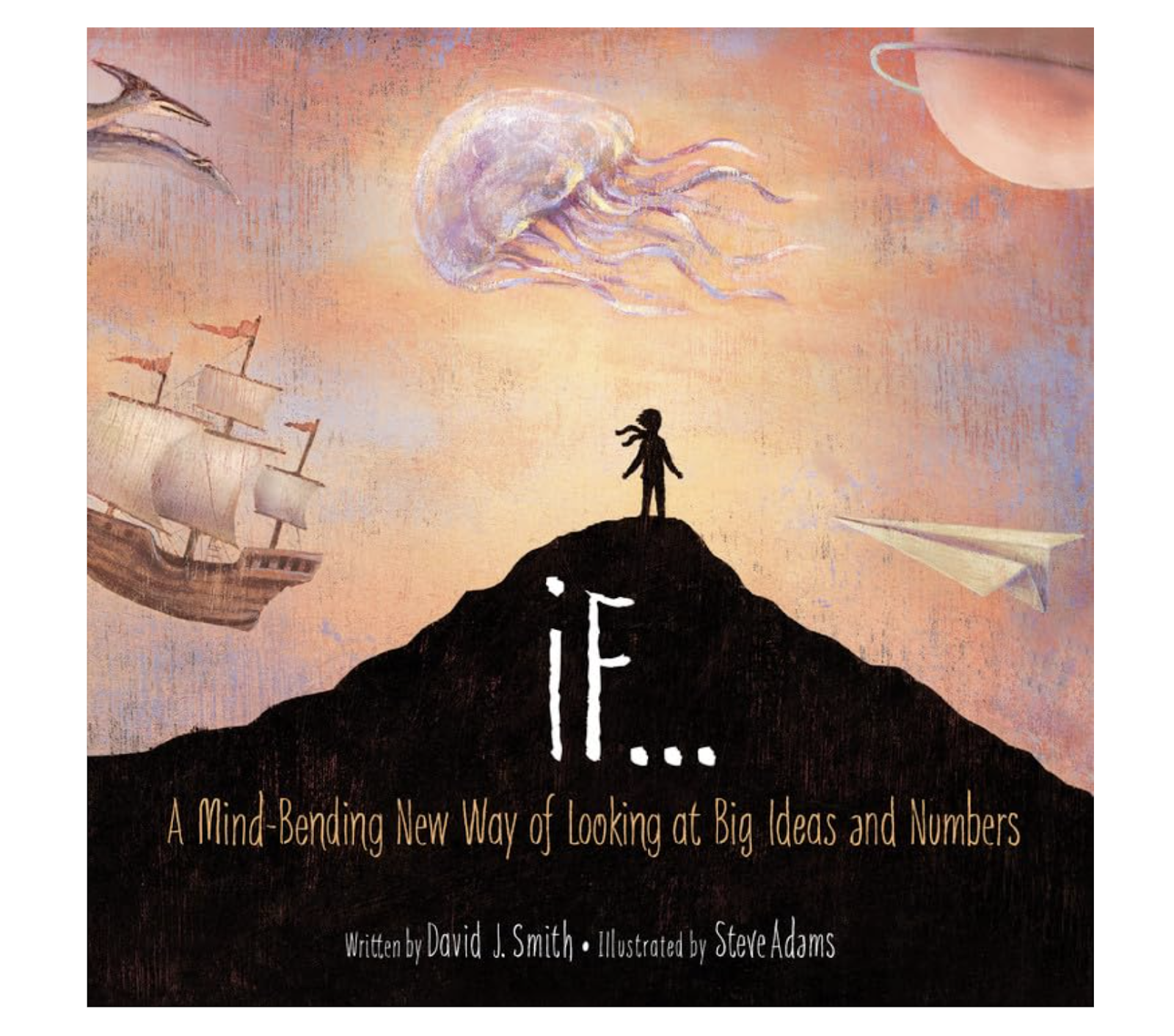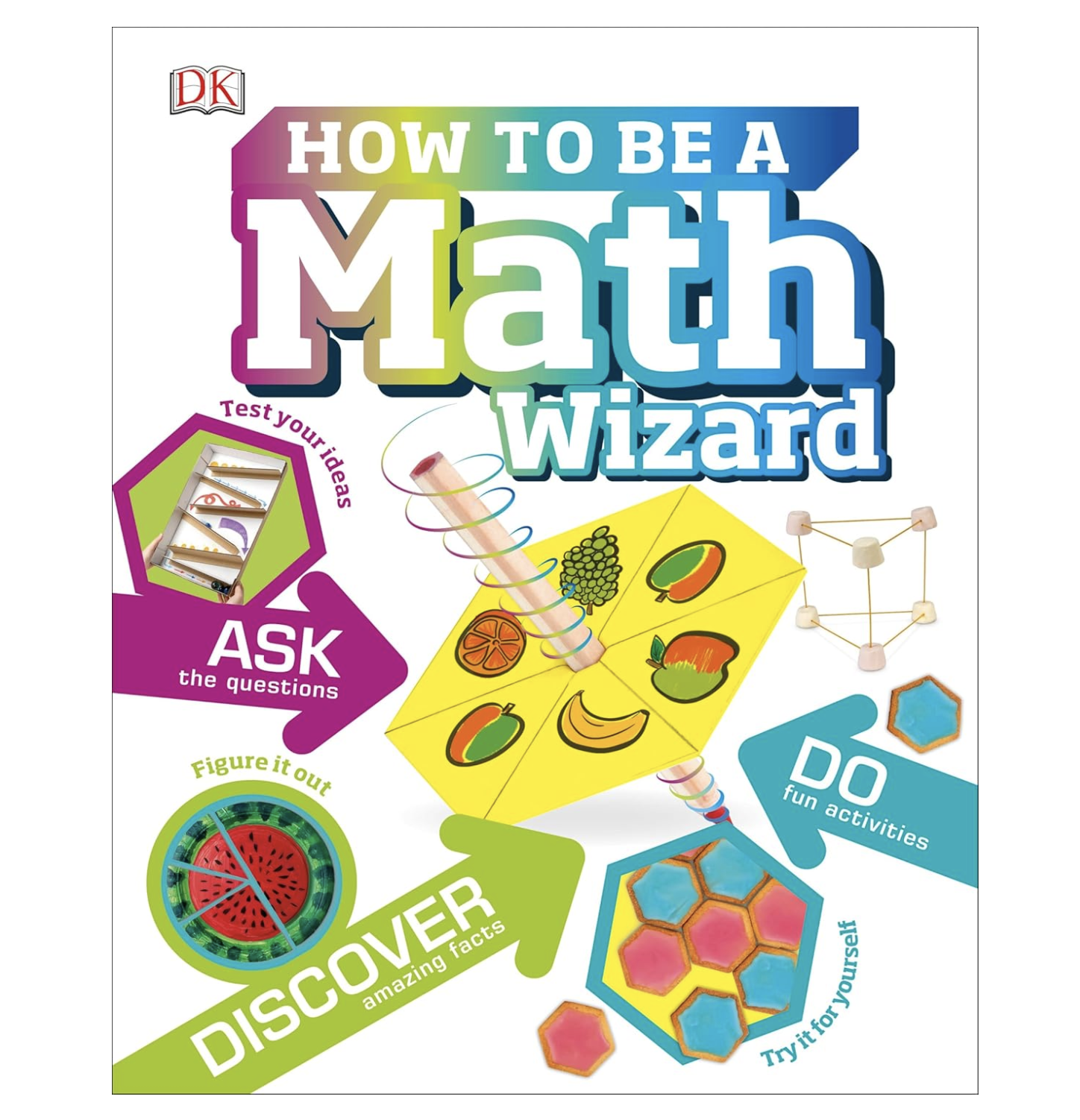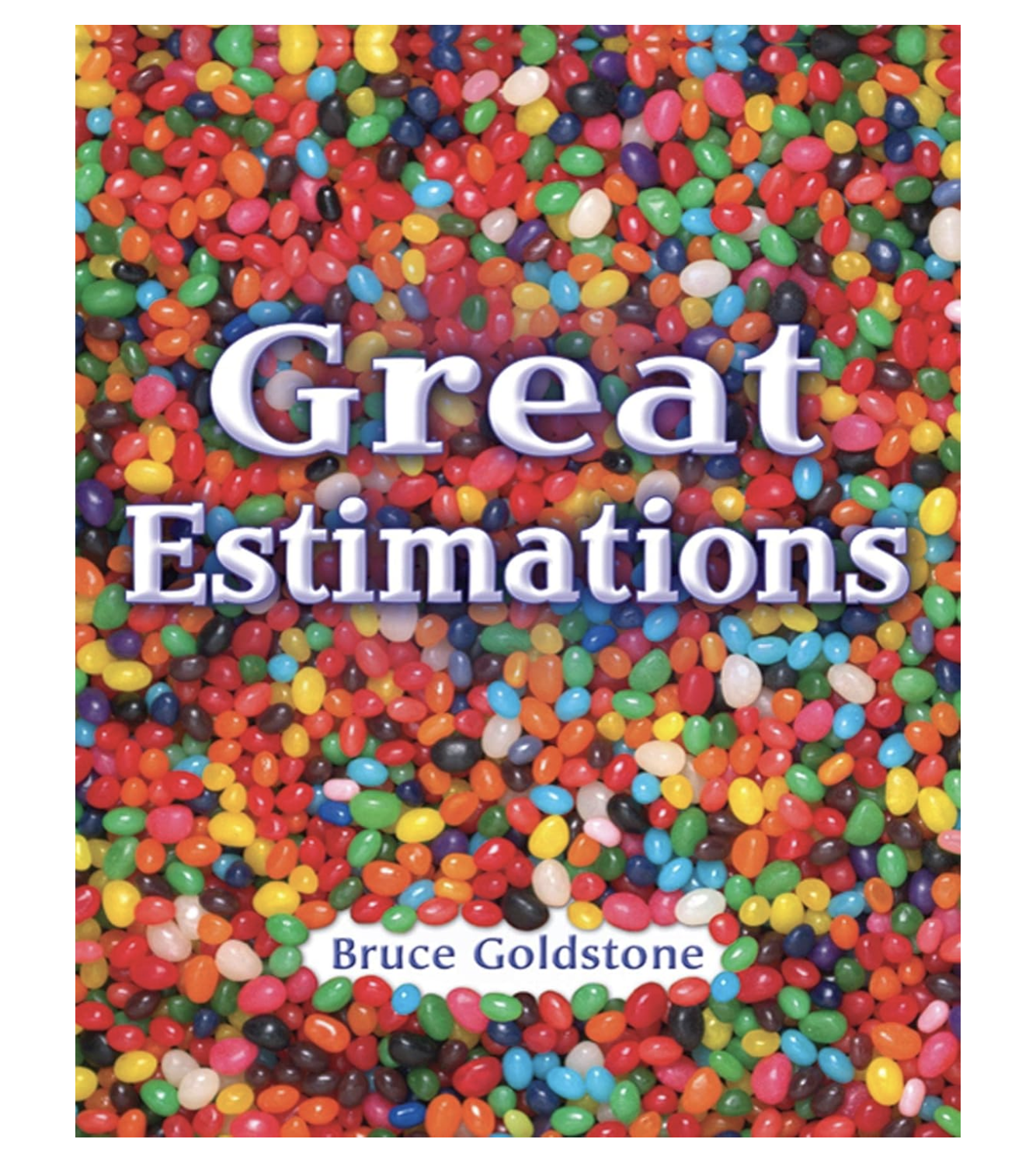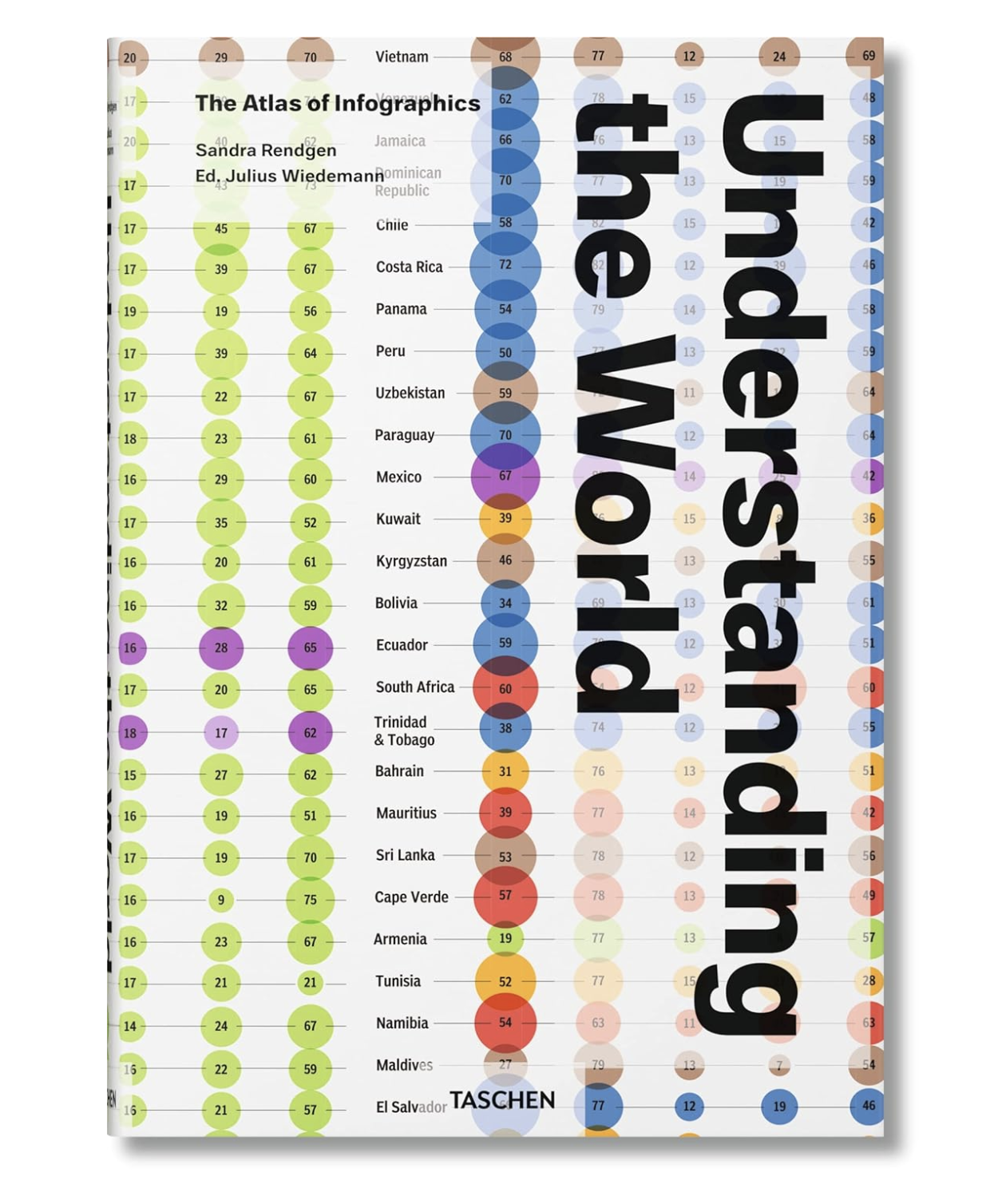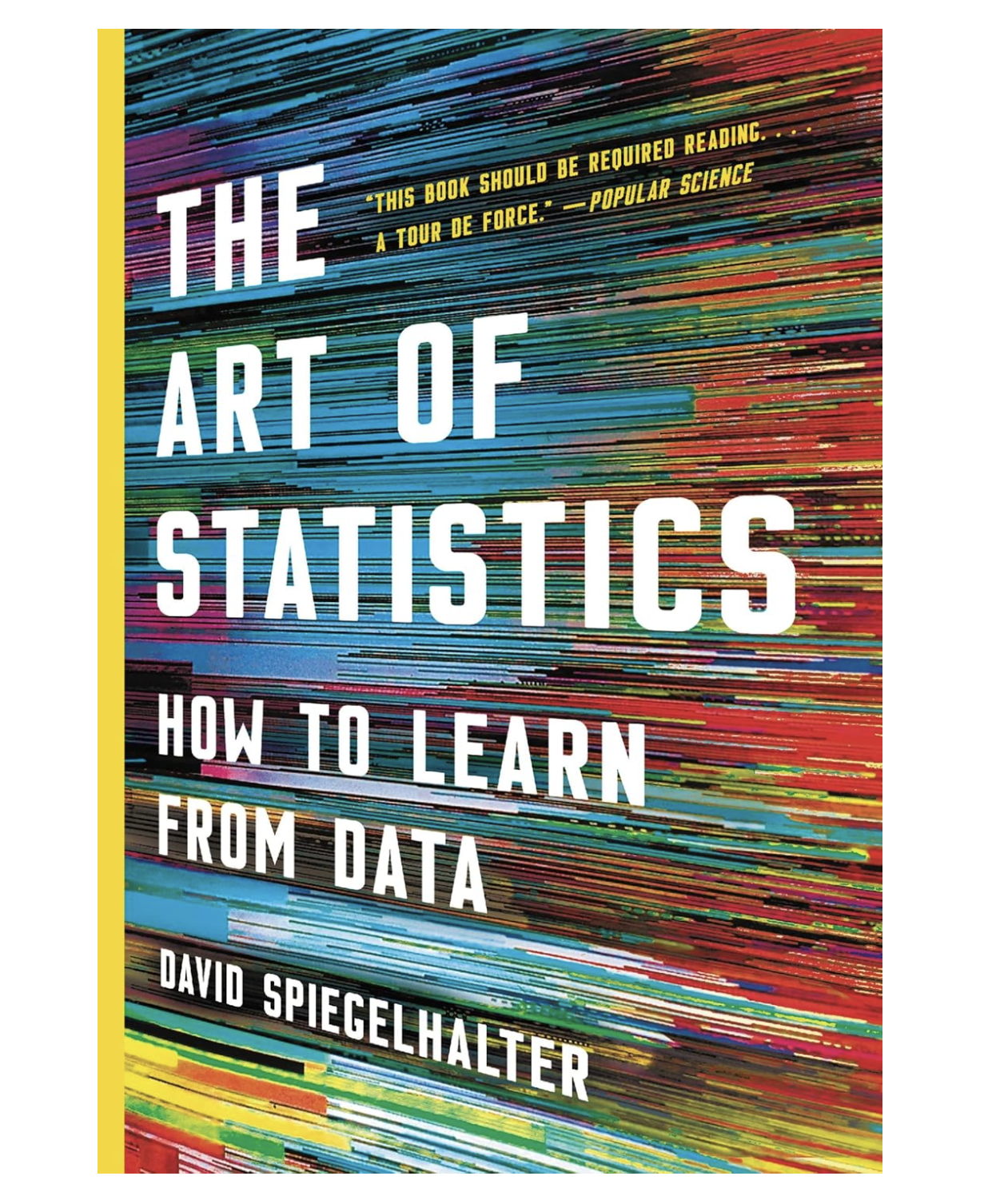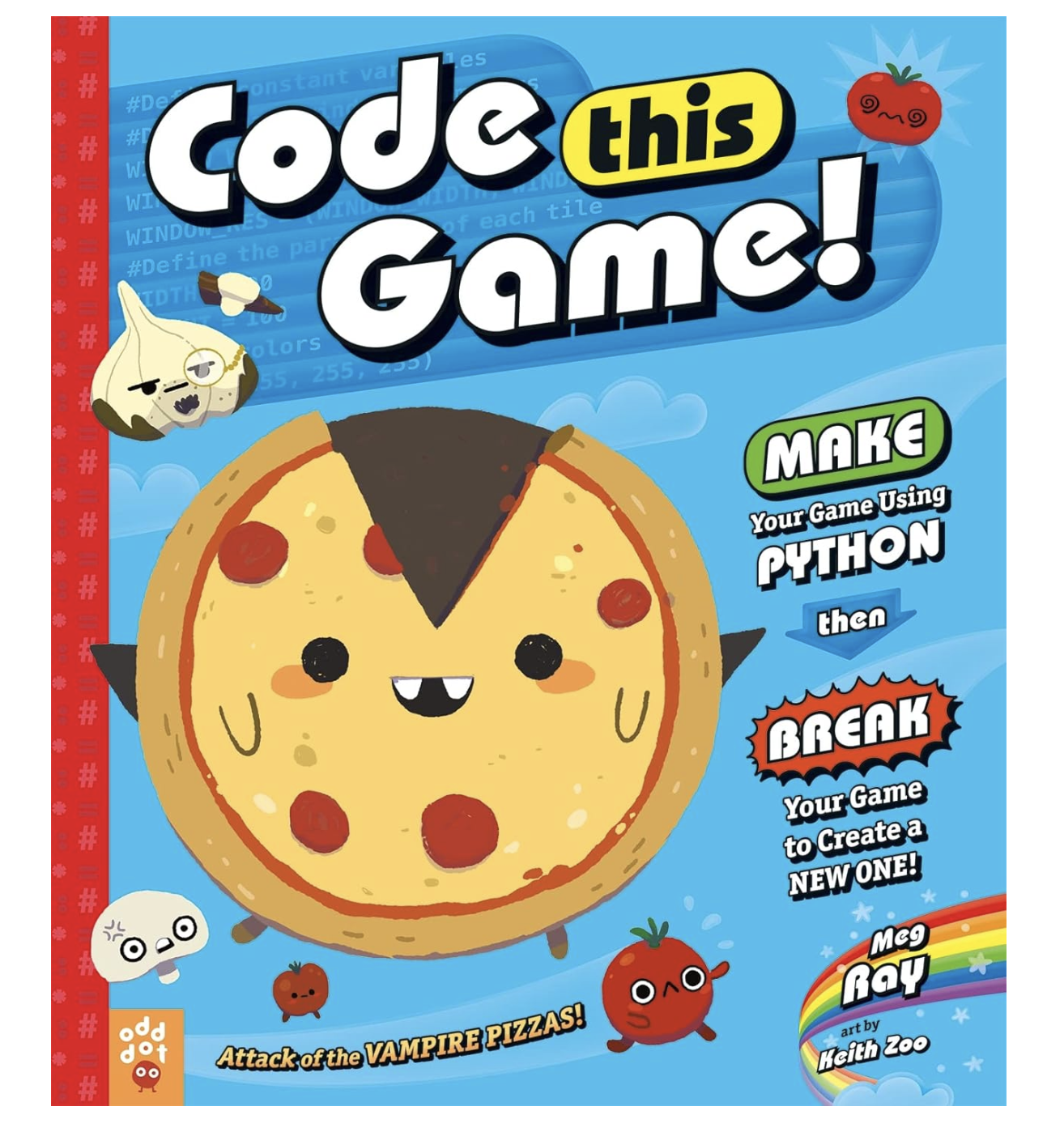Course
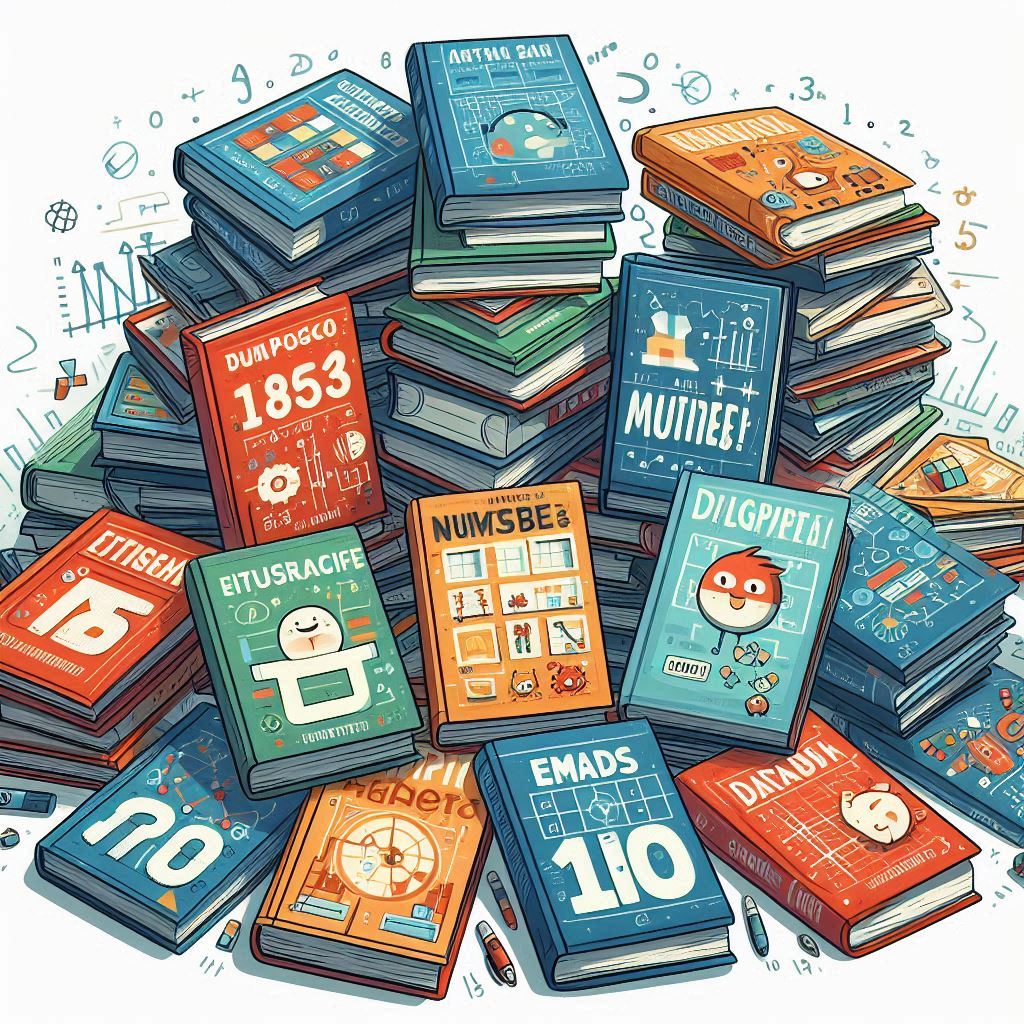
Cover image generated by Copilot.
Data literacy is becoming an increasingly important skill. As we live in a world flooded with information, teaching kids to think critically about numbers, statistics, and problem-solving can give them a valuable head start in their life. Whether your child is five or fifteen, a great data book can help them understand the world they are in.
As a parent and a data-nerd myself, I am passionate about finding the best ways to share my data skills with my kids. So, I’ve curated a list of the best data-themed books for kids. These books encourage the exploration of key concepts like patterns, graphs, and statistics. And they focus on teaching kids the way they learn: through fun!
Why Teach Kids About Data Early?
You may be thinking, is my child too young to learn about data? The truth is, your kids are already learning about data. Children naturally observe, collect, and interpret data in everyday situations. Think about how often a child counts their blocks before knocking them down, counts down the number of days left until their birthday, or compares the relative sizes of their and their sibling’s slices of pie. Children are natural scientists. By encouraging these early impulses in the right direction, parents can help nurture those nascent critical thinking and problem-solving skills.
Starting early with foundational skills like data literacy can have long-term benefits. According the 2024 State of the Field: Data Science and Data Literacy Education in US K-12, early exposure to data concepts not only builds critical thinking skills but also fosters curiosity and creativity. These foundational skills help build the cognitive frameworks they need to tackle more complex concepts later in life.
Choosing the Best Data Books for Your Kids
When selecting the best data books for kids, it’s best to keep a few points in mind.
Firstly, consider the age appropriateness of the book. Many children’s books come with a general guideline for the age it’s geared towards. But you know your child best! If your child is comfortable with concepts and needs more challenging material, go ahead and get them a book slightly more advanced. Or if your child is still working on concepts, a slightly less advanced book might be more appropriate. Go with your gut. And remember, if it’s not quite right right now, that’s fine! Books don’t expire.
Next, try to choose engaging books. Choose books that align with your kid’s interests or character preferences. Is your kid into space? Maybe a NASA-created book discussing the mathematics of space travel would engage them. Or maybe your child is really into Frozen? Try a coding book with Elsa and Anna! Other ways a book can engage your child’s interest include hands-on activities or interesting visuals.
Lastly, you should vet the concepts in the book. Remember that anyone can self-publish these days. You want to read through the book yourself and make sure it’s explaining concepts correctly. You also want your library to include a diversity of data concepts, from patterns, to graphs, to basic analyses.
In this list, I have chosen a few of the best data books for each category. Many of these I actually own and use with my kids! For the most part, I have avoided explicit textbooks in this list. I am more focused on the types of books that kids will self-engage with, rather than those they would be assigned to read in school. Let’s take a look!
Best Patterns and Basic Concepts Board Books (Ages 0-5)
For babies and toddlers, I usually recommend board books. They are more durable than paper books, easier for the child to hold, and usually have fewer pages that are easier to turn.
1. Baby’s First High-Contrast Books: Boxed Set
For very small babies, their color vision is not yet well developed, so high-contrast images offer them interesting visual stimuli. I like this set of black and white board books from Wonder House Books. They have large, simple images that you can talk about with your baby.
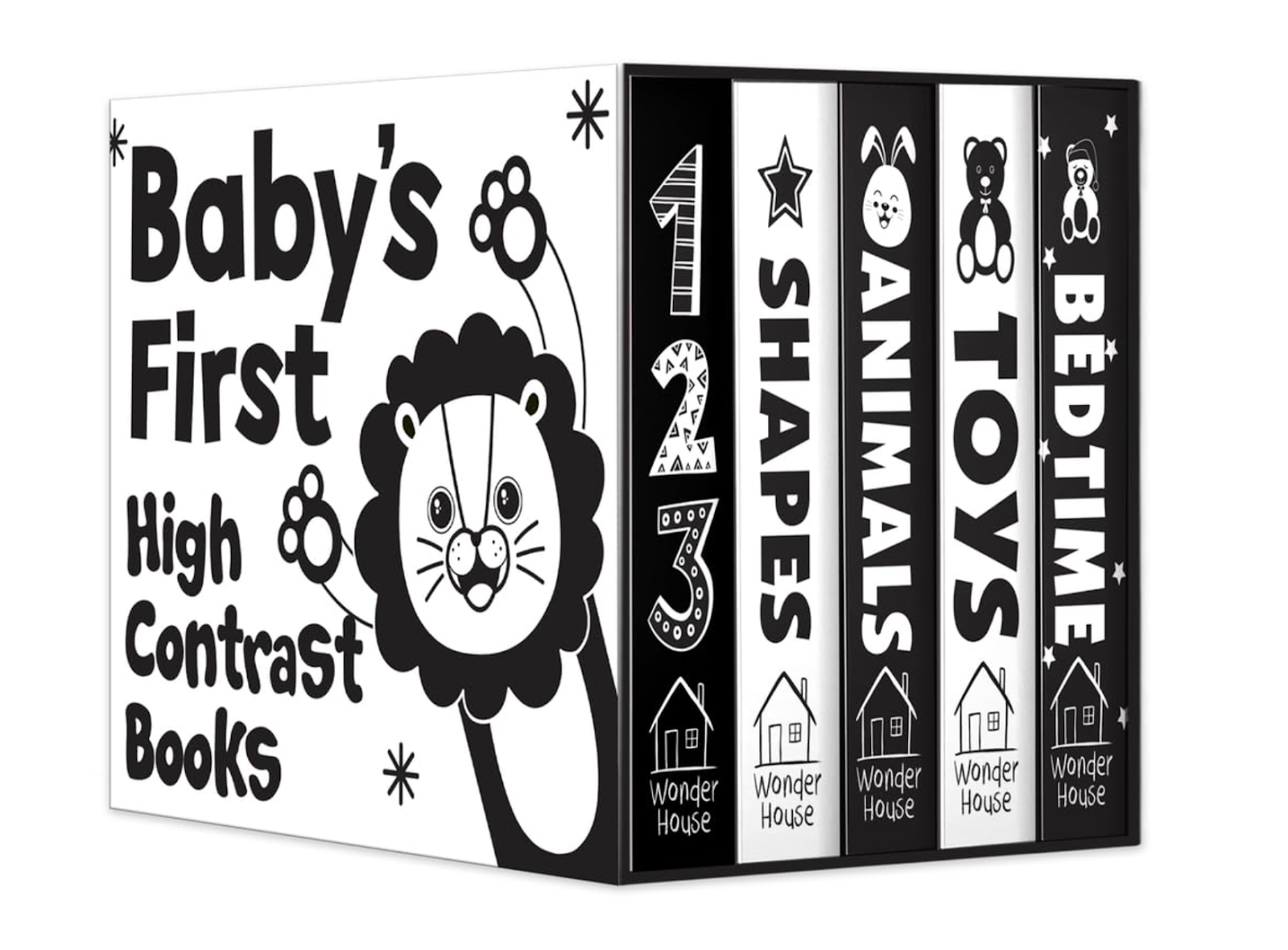
2. Baby University Complete "for Babies" Board Book Set
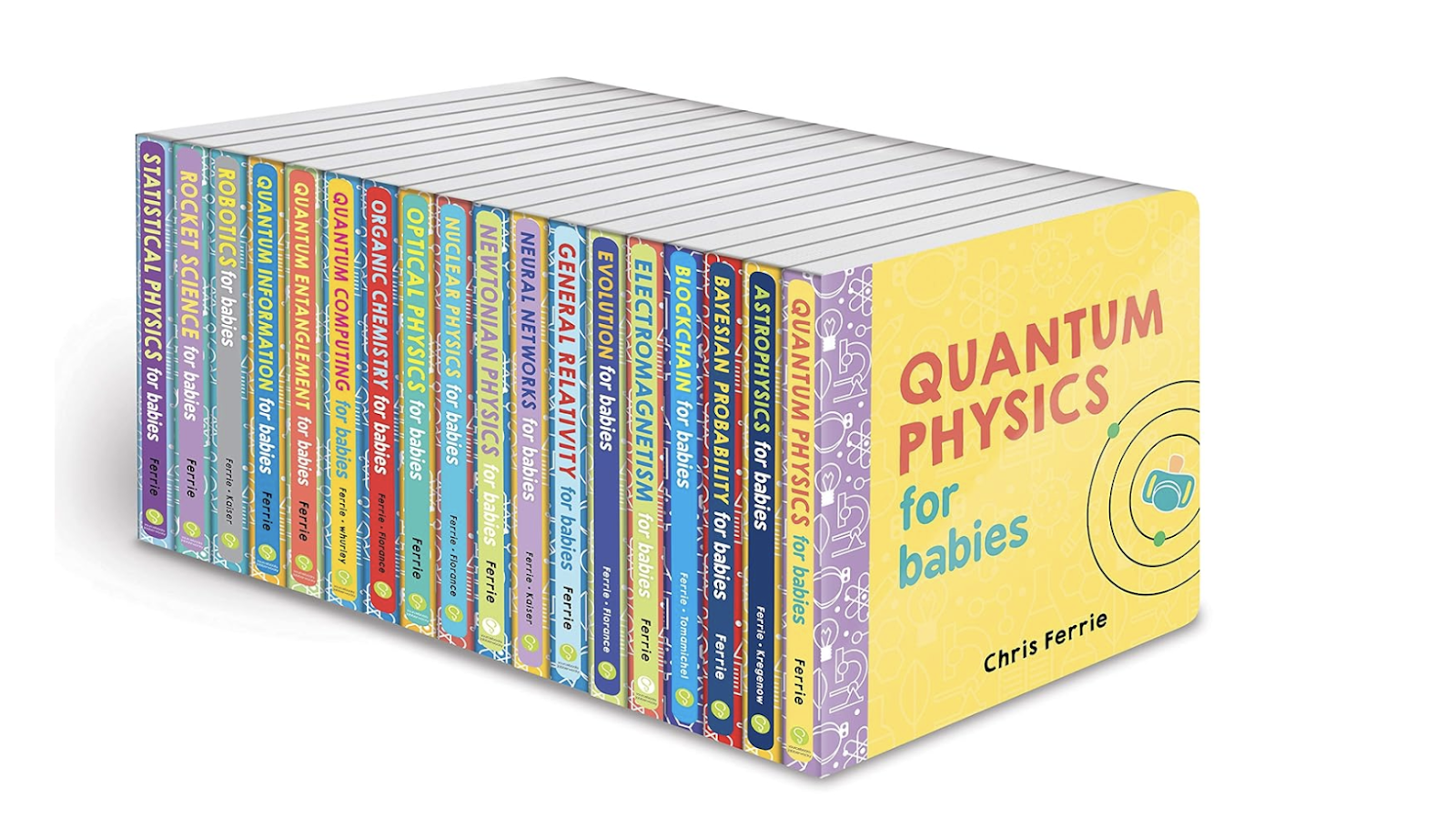
Once they’re a little bigger, books can start to convey concepts, instead of just patterns. For this age group, my favorite are the Baby University board books, famous for their Quantum Mechanics for Babies headliner. Among their listings, they have Neural Networks for Babies, Bayesian Probability for Babies, and even Artificial Intelligence for Babies. This author does a fantastic job of taking complex ideas and explaining them in an intuitive way that toddlers (and adults) actually can grasp.
3. ABCs of Mathematics
For slightly older toddlers, their ABC’s of mathematics is also a great introduction! These books have multiple levels of explanation, so the books grow with the kids. This one covers a lot of topics, but very briefly, so the child can focus on the parts they find interesting and skip the parts they don’t.
Best Data & Math Picture Books (Ages 5–8)
At this age, many children are starting to transition from their parents reading books to them to reading books on their own. Good data books for this age should offer clear visuals, simple narratives, and easy-to-read language. These should focus on foundational concepts like counting, basic graphs, and patterns.
4. Count on Me
Count on Me, by Miguel Tanco fits the bill here. This is a heartwarming story about a little girl who likes math. She sees the beauty of math in her everyday life. The book compares a love of math to a love of other pursuits, like art. This book is less about formally introducing mathematics to children, and more about spreading a love for numbers.
5. The Great Graph Contest
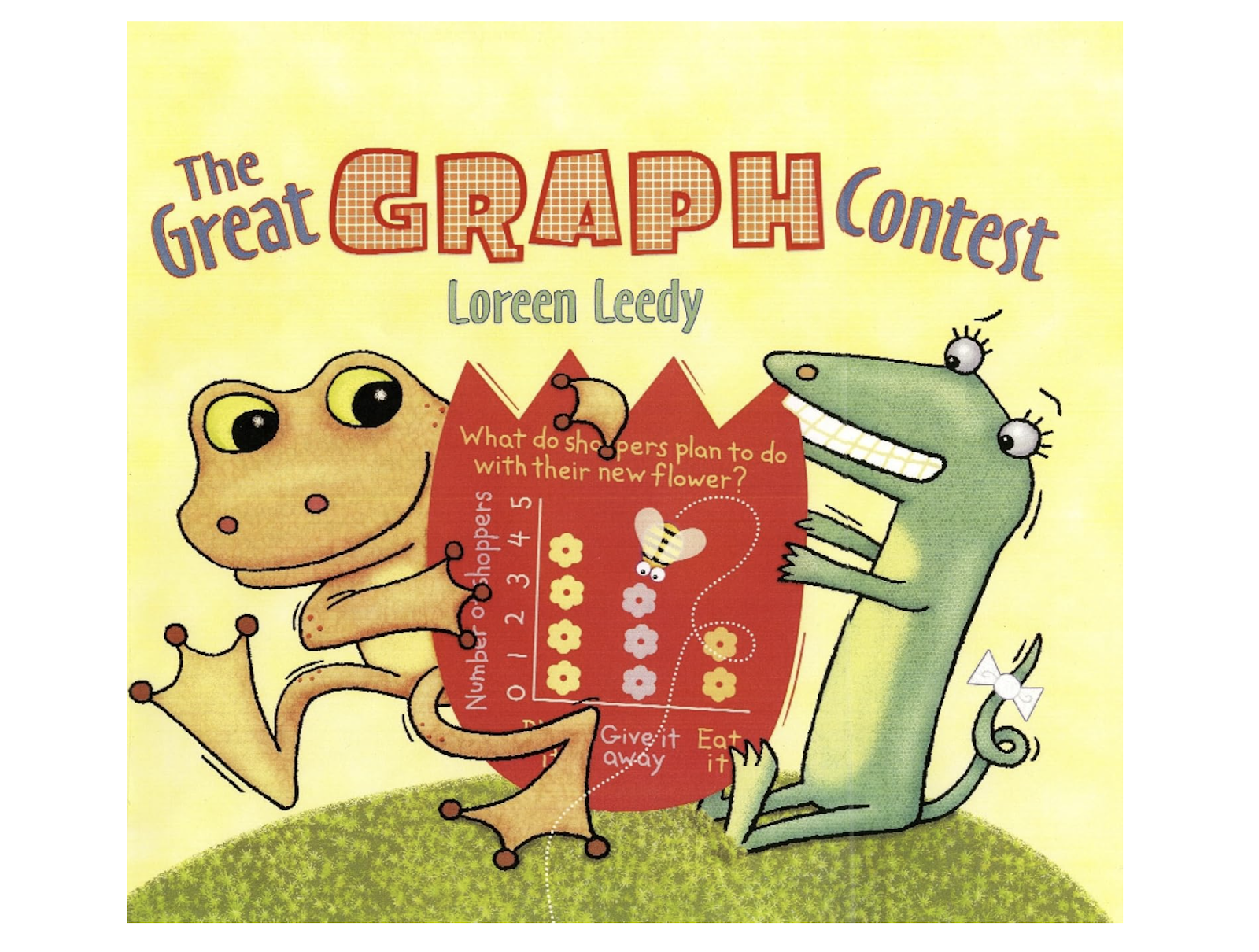
If your kid is interested in graphs, check out The Great Graph Contest, by Loreen Leedy. It’s a simple introduction to the concepts of answering questions quantitatively, and displaying information visually. In this story, a frog and a lizard compete for who can make the best graph describing the information around them. The writing style is almost like a graphic novel meets a scrapbook, with most of the exposition happening in dialogue. You can check out a reading of this on youtube.
6. Daphne Draws Data
Another great graphing book for this age group is Daphne Draws Data, by Cole Nussbaumer Knaflic. In this story, your child can go on an adventure with a dragon, using data graphs to solve problems.
7. One Little Byte: Data Sizes Made Easy
This is a very cute book about the sizes of data. This book pairs adorable images with short poems that explain how big a bit, a byte, and a kilobyte are in intuitive ways. For example, he answers the question, if a bit was an ant, how many ants would make up a byte?
8. If: A Mind-Bending New Way of Looking at Big Ideas and Numbers
If, by David J. Smith, is an easy reading book perfect for this age group. It uses intuitive units (like glasses of water) to put the numbers of our world into perspective. The reading chunks are a little longer, so early readers may prefer to read this one with an adult.
Best Data & Math Books for Kids (Ages 8–14)
For kids who are comfortable with longer books or are interested in more complex math concepts, these books are perfect! They pair interactive activities with fun math ideas that bring data to life for kids!
9. How to be a Math Wizard
How to Be a Math Wizard, by DK offers an interactive way for kids to engage with math. It has historical snippets, crafts, and kinesthetic exercises that convey mathematical concepts in a very intuitive, play-based fashion. You can think of it like a children’s museum in a book!
10. Data Made Fun for Kids
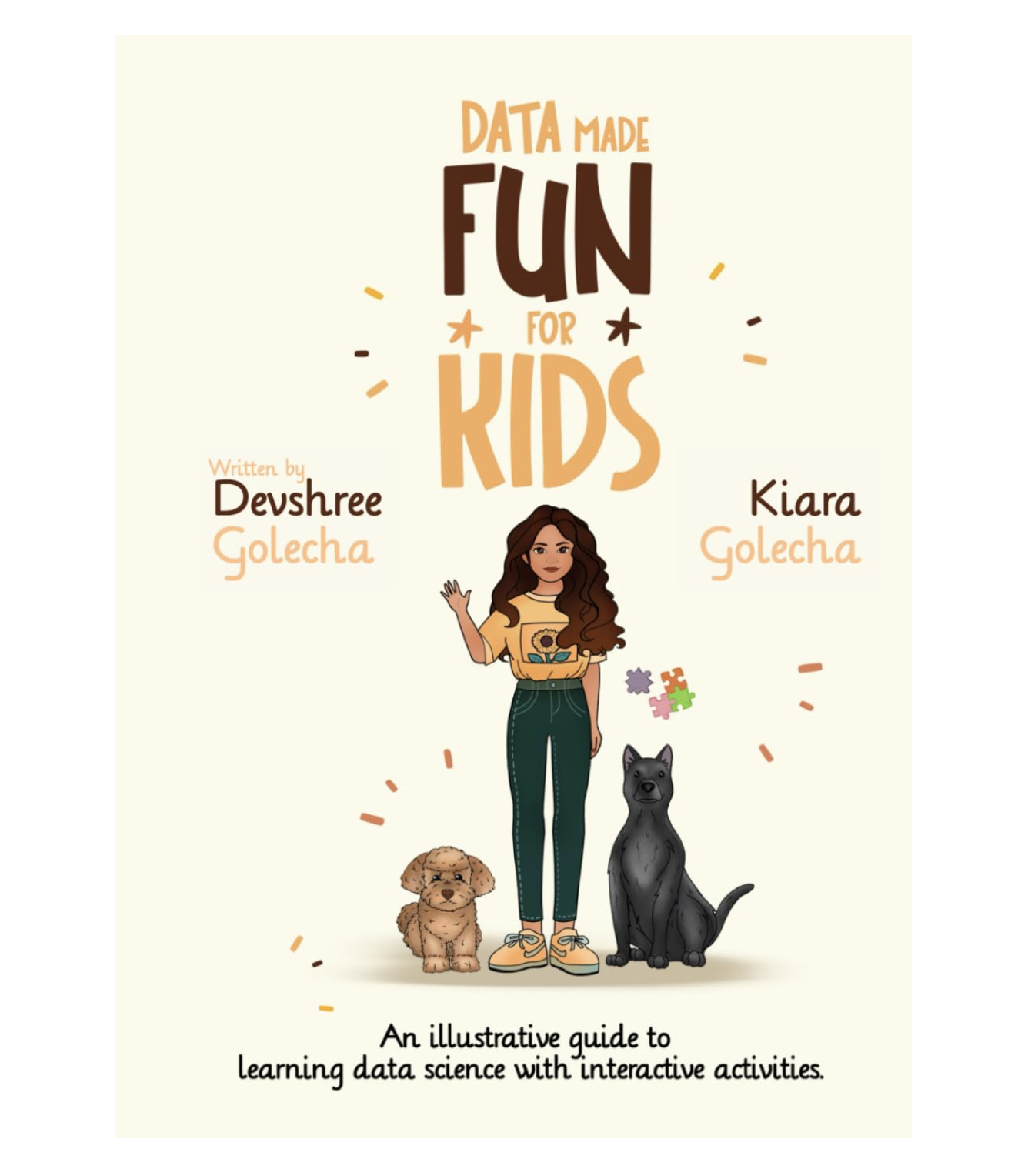
Data Made Fun for Kids: An Illustrative Guide to Learning Data Science with Interactive Activities by Devshree Golecha is another great book for this age range. It follows a girl and her dog as they explore the world of data. They cover every step from gathering data to finding patterns, to interpreting graphs.
11. Great Estimations
This one is really fun! This book teaches kids shortcuts for counting large numbers of things. What kid wouldn’t want to learn the trick to winning every “guess the number of jellybeans in the jar” contests?
Best Data Visualization & Logic Books for Teens (Ages 13–18)
Teenagers can dive deeper into the nitty gritty of data interpretation, visuals, and logical reasoning. But they still want a book that engages their curiosity and imagination.
12. Understanding the World: The Atlas of Infographics
Understanding the World: The Atlas of Infographics, by Sandra Rendgen, displays a wide variety of fascinating infographics. It’s a testament to all the unique ways data can be displayed. This is a book I think a lot of adults (me!) would find interesting to peruse too!
13. The Art of Logic in an Illogical World
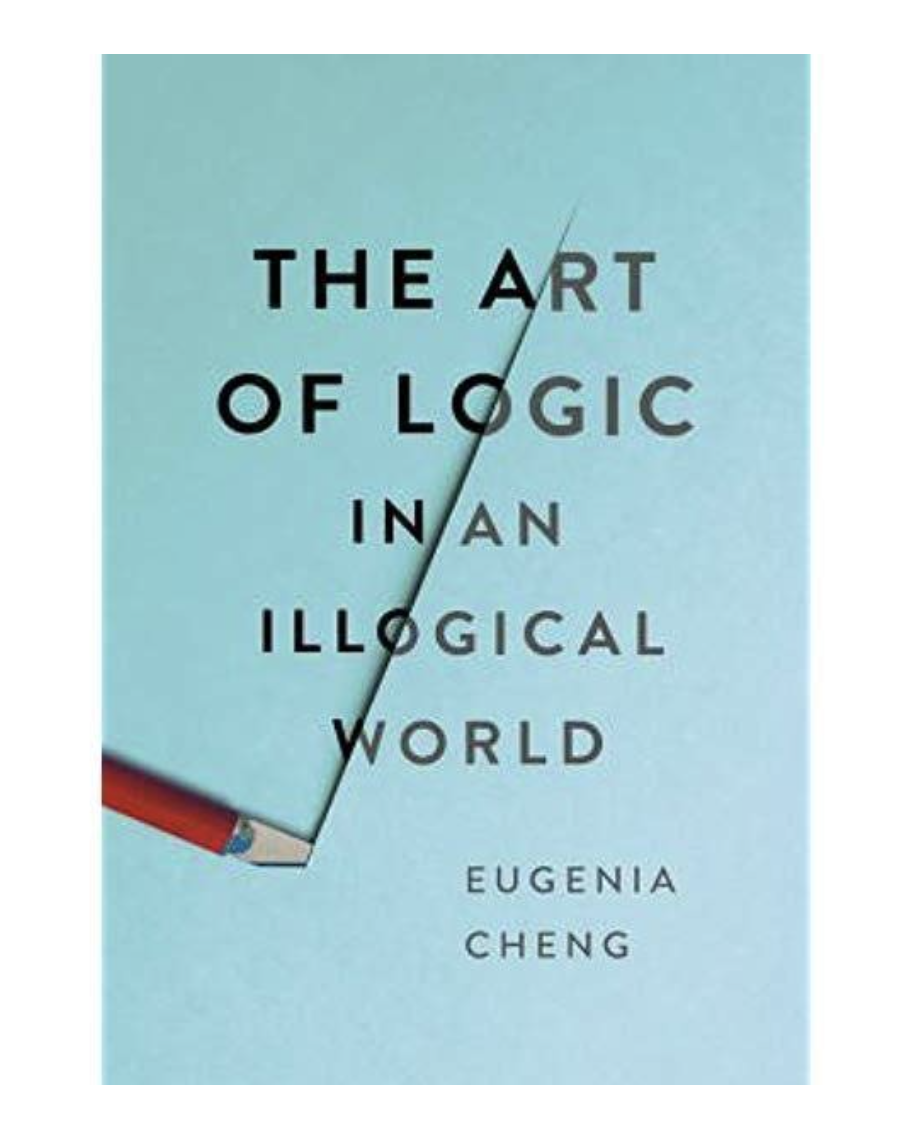
Teens are in a precarious position between childhood and adulthood. The Art of Logic in an Illogical World can help smooth that transition by giving teens a framework for how to understand the sometimes-chaotic world we live in. The author, Eugenia Cheng, guides readers through a study of what logic is and how logic and alogic (or emotion) affect every part of our lives and society.
14. The Art of Statistics: How to Learn from Data
The Art of Statistics by David Spiegelhalter is another thoughtful book that older teens will enjoy. It discusses how to correctly interpret the statistics that are all around us. Teens in particular are bombarded with statistics on social media and advertisements, trying to sway their behavior. By arming your teen with this book, you can give them a lens through which to view and better understand all those numbers.
If they end up getting really interested in statistics, they can always try out an Introductory Statistics Course!
Best Activity Books, Workbooks, and Graphic Novels
If you’re looking for something a bit more hands-on, here are some great activity books and workbooks for kids of all ages.
15. Coding and Logic Workbook! 101 Challenging Fun Coding Activities and Logic Puzzles
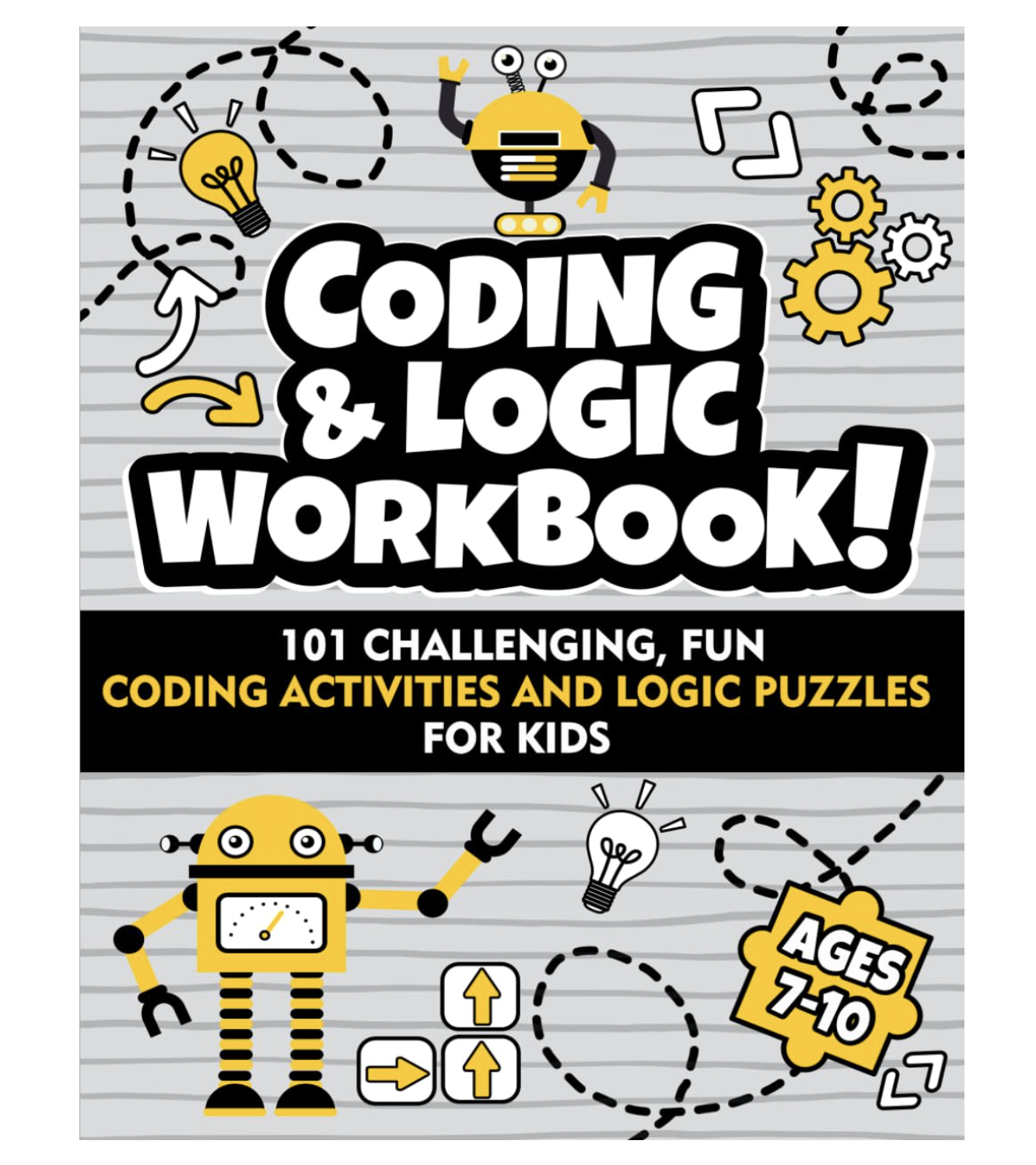
The Coding and Logic Workbook by Julia Dream is a unique workbook that teaches coding skills without a computer! This book is chock-full of logic puzzles that teach about algorithms, sequences, and even debugging. And the best part, is they can do these puzzles on road trips, at the park, or really anywhere, because they don’t need to have access to specific technology.
16. Code This Game - Macmillan
For learning Python on a computer, there’s no book that compares with Code This Game. I actually have this one on my shelf right now! It’s an interactive coding book geared towards 10- to 14-year-olds. In this book, kids learn how code their own game in Python, called Attack of The Vampire Pizzas. It’s a fun and engaging way to learn about coding in the data world’s most popular programming language.
17. Building Blocks of Computer Science (8 Volumes)
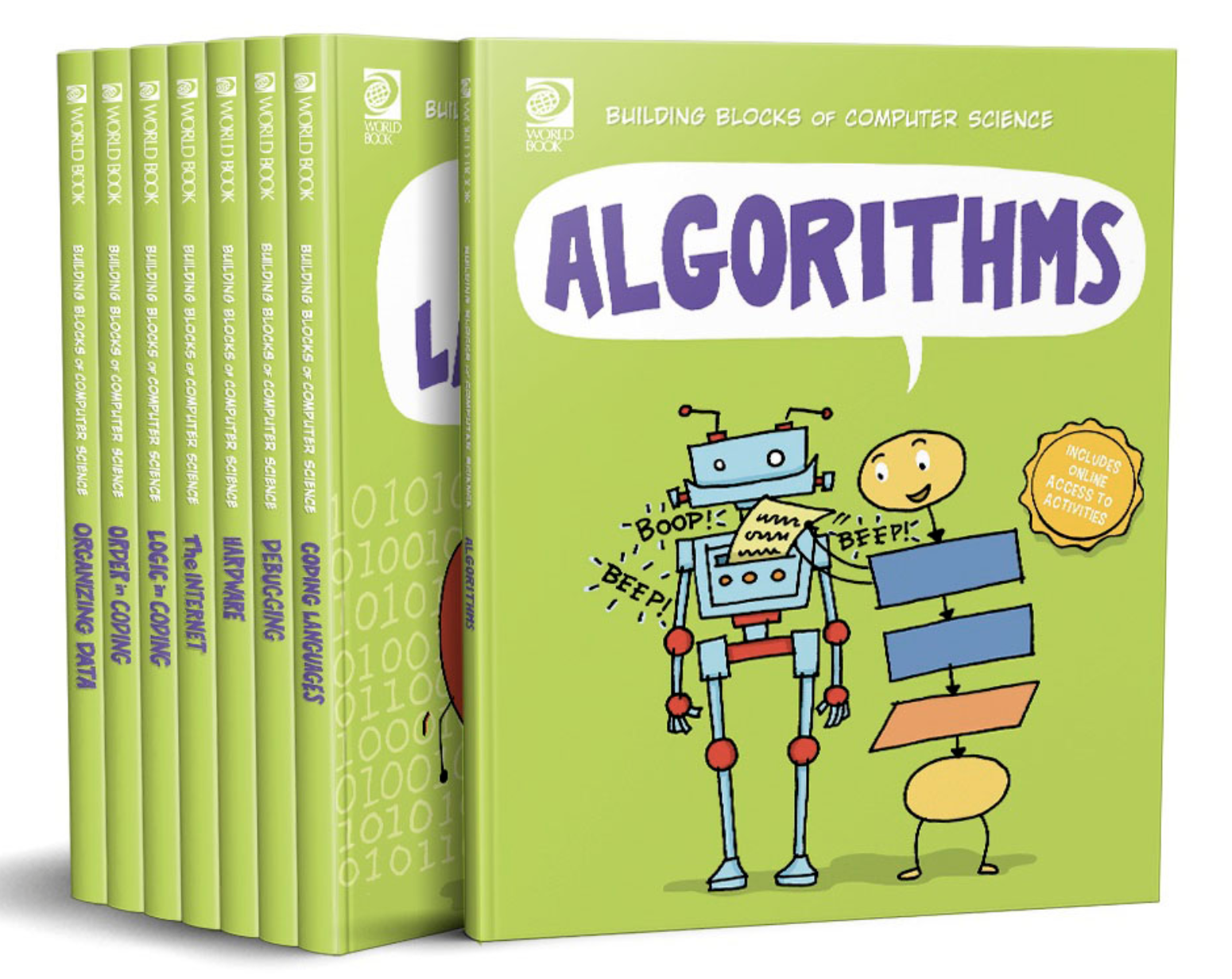
If your kid is more of a graphic novel enthusiast, check out this collection of computer science books. Their comic book style makes it easy and fun to engage with. And the collection includes books on data organization, algorithms, and logic.
How to Reinforce Learning and Foster a Lifelong Love of Data
Beyond reading books, you can encourage data literacy in your kids with everyday activities. Is the whole family voting on where to go to dinner? Try tallying up everyone’s choice and making a quick graph. You can also have your kids track their own screen time or the amount of homework they get and help them see if they can find any patterns.
The most important way you can foster a love and curiosity for data is to model it in your own life. Share your lifelong learning journey with your children. Tell them about a new algorithm you’re learning about or a new book you’re reading. Increase your own data literacy. Listen to the DataFramed podcast together in the car. Show them your nerdy side and you just might find that they have one too.
Conclusion
Books have the power to make data, math, and critical thinking an exciting adventure for kids. With the right blend of fun and concepts, they’ll be well on their way to becoming confident data users.

I am a PhD with 13 years of experience working with data in a biological research environment. I create software in several programming languages including Python, MATLAB, and R. I am passionate about sharing my love of learning with the world.
FAQs
Why would my child need a data book?
Data literacy is more important than ever! Gone are the days when the only math you needed was financial. Now we need to be able to interpret the graphs on the news, the metrics on our smartwatches, and the algorithms that shape our online experiences. And integrating data literacy education into our childrens’ lives can take many forms, from activities, to videos and podcasts, to data books!
What age is too young to learn about data?
No age is too young to start learning about data! Of course, no 3 month old is going to be doing calculus. But learning about patterns, correlation, and ordering start right away. So go ahead and foster those explorations!
What should I look for in a data book for my child?
The best book for your child will be at the right level for their understanding, be aligned with their interests, and allow for multiple degrees of engagement.
What if my child is not interested in math?
Data literacy can be cultivated, even in those who aren’t naturally drawn to math. Data is everywhere, and any hobby or interest will have an element of math involved. Find a book that explores the math in their current passions. Are they interested in fashion? Maybe they’d like a look at how sizing or pricing is determined. Are they a painter? Maybe they’d enjoy learning about color ratios or scaling. Find the angle that engages their interest.
What if my child won’t read the book?
Don’t be discouraged if your child is not immediately interested in the book you get them. Keep it available where they have access to it and you might be surprised to find them checking it out on their own. (Sometimes it’s just about creating an environment for exploration.) Remember, these books are meant to be enjoyed, not endured. You can also try getting their input on the type of book they’d be interested in. Look together in a bookstore, library, or online.
